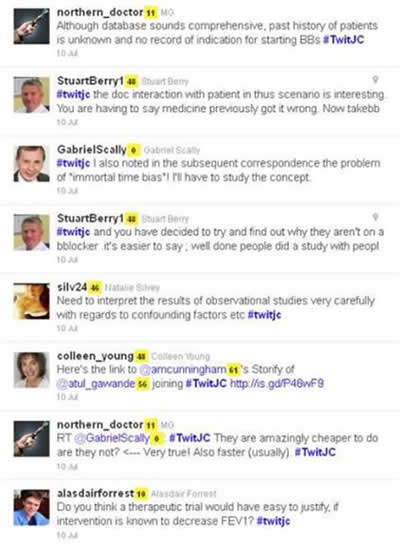Twitter Journal Club: yet another ‘revolution’ in scientific communication?
15 Jul, 11 | by BMJ
A junior doctor in the West Midlands and a medical student at Cambridge University have kicked off a new movement in the medical community by launching the first ever Twitter Journal Club. Heralded as a ‘revolution’ in scientific communication, it has enjoyed positive coverage from publishers and practitioners alike (e.g it was mentioned today at the ASME Annual Scientific Meeting). Now in its seventh week, the initiative has amassed over 950 followers on Twitter and last Sunday generated 448 tweets during a discussion of the following BMJ paper: Effect of β blockers in treatment of chronic obstructive pulmonary disease: a retrospective cohort study

 Google started rolling out the ‘+1’ recommend button across its own portfolio and third-party web sites just a day after Twitter unveiled its new ‘follow’ button. Both releases are being viewed as direct competitors to Facebook’s popular ‘like’ button.
Google started rolling out the ‘+1’ recommend button across its own portfolio and third-party web sites just a day after Twitter unveiled its new ‘follow’ button. Both releases are being viewed as direct competitors to Facebook’s popular ‘like’ button.